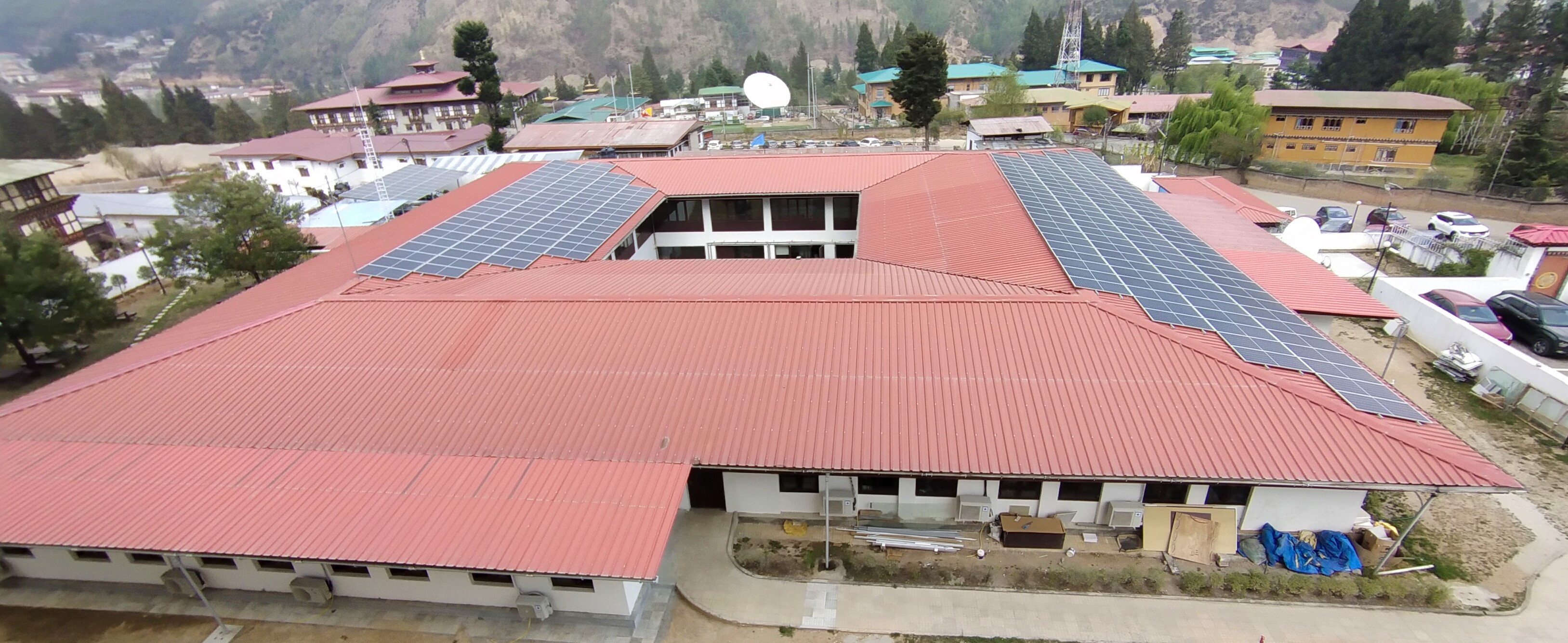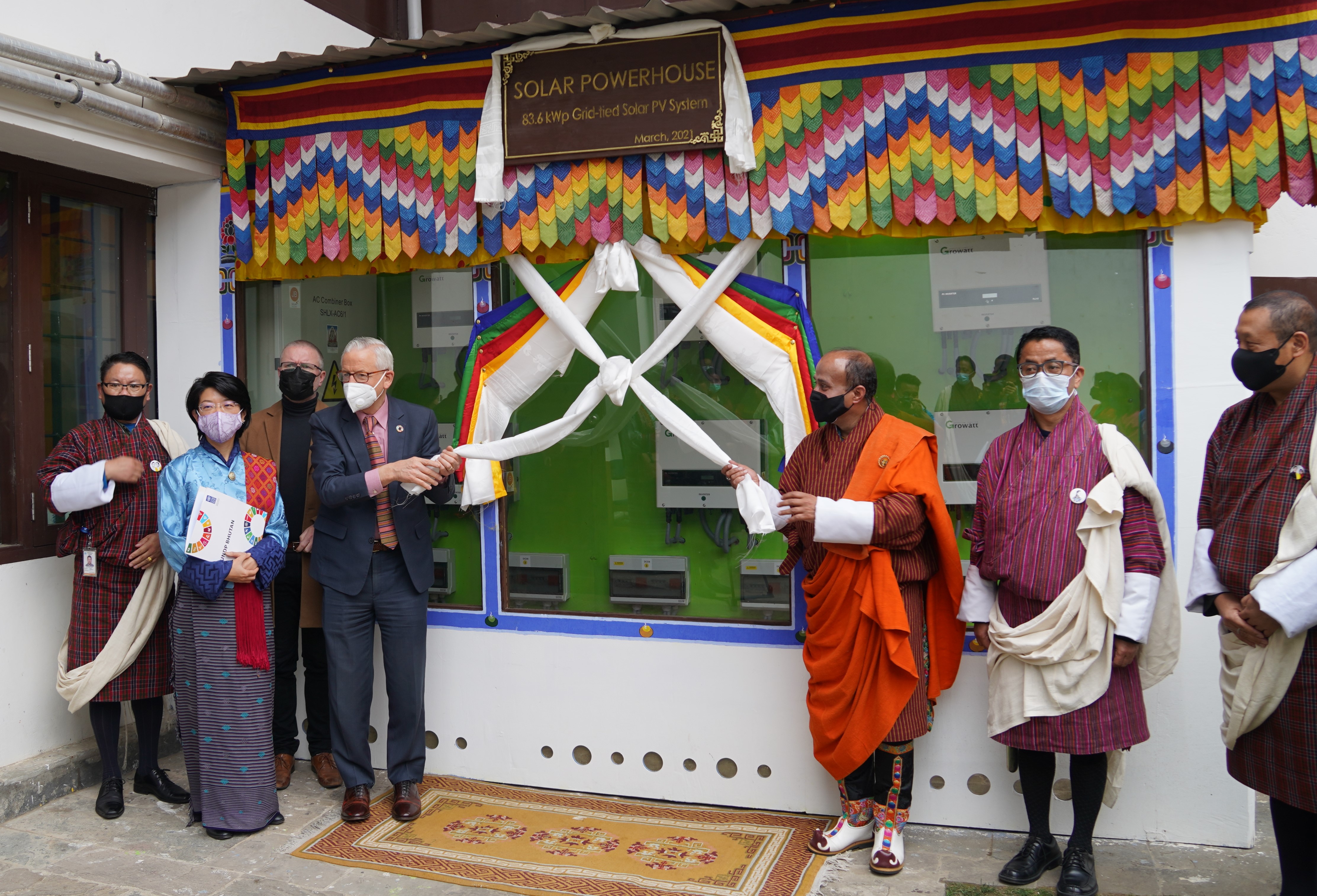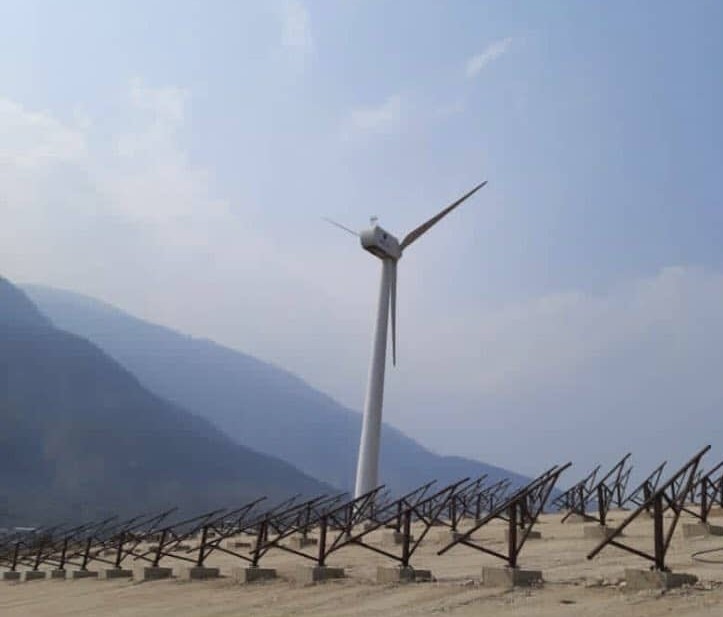The pilot grid-tied solar project at the UN House will demonstrate solar as a reliable energy source and serve as a key driver of energy source diversification in Bhutan.
The UN House in Thimphu inaugurated its 83 KW grid connected rooftop solar, a first of its kind in Bhutan, and the 20 KW solar-thermal space heating projects on 8 March 2021. Built at a total cost of USD 99,000, the investment works out to USD 1192/KW installed capacity and is comparable to the costs of other conventional energy sources. As part of the UN’s collective efforts, UNDP contributed US$ 70,000 through the Green Fund initiated by UNDP Regional Office.
While the components of the solar projects are imported, the design as well as installation of the project was carried out by JB Solar, a local firm involved in the design, assembly, and installation of solar photo-voltaic systems.
UNDP is currently in the advanced stages of discussion with the Bhutan Electricity Authority, the regulatory authority on electricity systems in Bhutan and Bhutan Power Corporation Limited on piloting a net metering system of the solar project.
Net metering, simply put, is a billing mechanism that credits solar energy generators for the electricity they add to the grid. In other words, it allows residential, institutional, or commercial customers who generate their own electricity from solar power to export the power they aren’t using back into the grid and subtract the energy exported from the monthly energy bill.
If the net metering plan comes through, the excess or saved energy generated by the newly installed solar panels at the UN House will be fed to the BPC grid. The benefits are manifold. First, a saving of over Nu. 500,000 in energy costs would be made annually. Besides the cost savings, the surplus energy export to India from the national grid will result in a mitigation benefit of 132.62 tons of carbon dioxide per year.
The most important benefit is its potential catalytic impact. The project will demonstrate the viability of solar as a viable energy source and is expected to serve as a key driver of energy source diversification in Bhutan. This is crucial as Bhutan currently relies on a single source, that is, hydropower. Climate change poses threats to Bhutan’s energy security as lean flow generation may not be able to meet domestic energy demand leading to import from the Indian grid.
“Greenhouse gas emissions dropped significantly worldwide last year due to the slowdown in travel and economic activities, but it may well remain a mere blip on the long-term graph if countries do not work harder to get all the way down to net-zero emission,” said UNDP Resident Representative Azusa Kubota.
“Bhutan is already carbon-negative, but here in the UN, we are going beyond net-zero by rigorously promoting electric vehicles and renewable energy, notably solar energy. I would like to thank our dynamic partnership with DRE in pursuing green growth and sustainable development and look forward to taking clean energy initiatives forward through policy dialogues and field engagements.”
This innovative project is led by UNDP with support from BPC. It builds on the 180 KW Pilot Grid-Tied Ground Mounted Solar PV System being installed in Rubesa, Wangdue Phodrang. The pilot project in Rubesa is being implemented by the Department of Renewable Energy (DRE), Ministry of Economic Affairs, and BPC in partnership with UNDP. It is part of UNDP’s COVID-19 response and recovery project titled, ‘Towards a Smarter, Greener and More Resilient Recovery through Innovation in Bhutan’ launched in July 2020 with fund support from the Government of Japan.
The solar project is housed at the Wind Farm in Rubesa and is expected to be commissioned by June 2021.
The UN House initiated its first solar project- a Solar Walkway- in 2017, which generates 1,225 KWh monthly and the energy generated is stored and used to light the UN House premises.
Contributed by Sangay Dorji, National Energy and Environment Expert and Dechen Wangmo, Communications Analyst

 Locations
Locations


